Clinic aims to help rape victims claim their body back
- Published
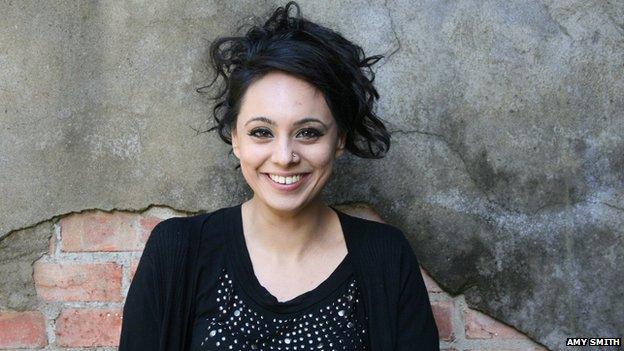
Pavan Amara waived her anonymity as a victim of rape to launch the project and hopes her story will help others
About 85,000 women are raped in England and Wales every year, according to official figures, external. Now, the UK's first cervical screening and sexual transmitted infections (STIs) clinic for women who have experienced sexual violence is to open in east London. The woman behind the project explains how she came up with the idea.
As a teenager Pavan Amara was raped.
Her attackers were jailed for life and after support and counselling she finally felt she could start to rebuild her life.
"Life continued and everything was normal," the 27-year-old from north London said.
"But then there were these things that wouldn't go away - like I had a really big problem looking in the mirror.
"And I'm asthmatic and I wasn't going to the doctor because I didn't want to be touched.
"You're in this room and it feels as though that person is physically in control."
Trigger memories
She thought there might be other victims of sexual violence who were also experiencing difficulties - so she interviewed 30 women.
The group she spoke to had been affected by a number of issues, from body image to difficulties having sexual health tests.
"There was one woman with a history of ovarian cancer in her family so she really wanted smear testing and she couldn't," said Ms Amara.
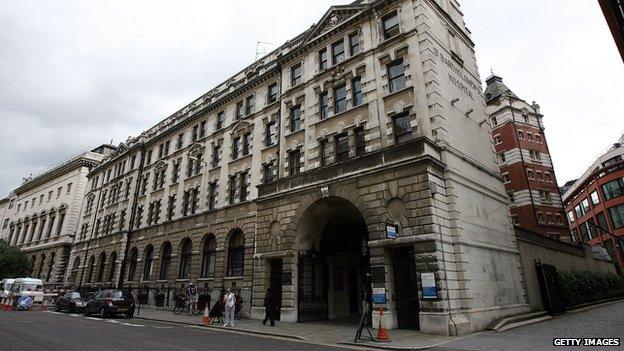
Women will able to visit the weekly clinic at St Barts Hospital, in east London
"She had gone before and the nurse had told her to relax - and that is what her rapist said to her, so she just left."
Ms Amara decided to launch the My Body Back Project, external to create a website and support network for survivors to share their stories.
She also began working with Barts Health NHS Trust to create a clinic specifically for women who had experienced sexual violence.
"I spoke to doctors and nurses and literally everyone I came across said they had met a patient who they thought something had happened to - but they did not know how to handle it," Ms Amara said.
From Thursday women will able to visit the weekly clinic at St Barts Hospital, in Smithfield, east London, for cervical screening and STI tests.
Appointments can be booked by either contacting the My Body Back project or through a GP referral. Demand has meant the clinic is already booked up until mid-October.
On arrival at the clinic patients will discuss in-depth with a health worker what could trigger memories of their attack.
"We would say in an ideal world what would you want your doctor or nurse to say to you and how you would like them to react so you would not feel nervous - how do you want us to do it, do you want to insert the speculum yourself?" said Ms Amara.
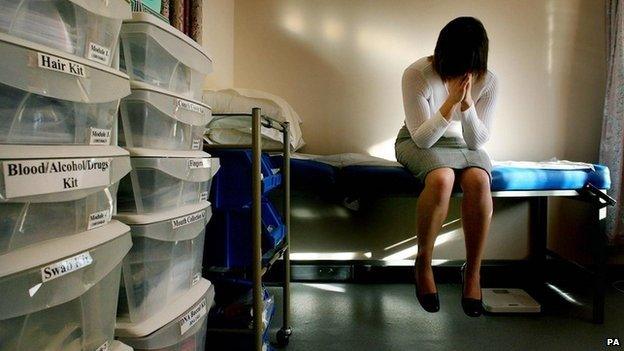
It is hoped the clinic will help address emotional and physical barriers
Women will able to control how they would like their appointment to proceed, from where they would like the clinicians to stand and what positions they feel most comfortable in to what music and clothing they would prefer.
There will also be cake, tea, aromatherapy and massages to relax patients before and after their appointments.
Patients will also be able to use self-testing kits to detect STIs, Ms Amara believes it's about survivors reclaiming control of their bodies. "It's about caring for yourself and the fact you are important," she added.
'Smears without fears'
Consultant physician Dr Jill Zelin, who will be working in the clinic, believes the project will help address emotional and physical barriers.
"In our experience we needed somewhere to go which has a psychology and medical service - usually people go to a psychological service and they are referred to a medical service," she explained.
"At the clinic you can see a psychologist and doctor in the same room."
Dr Zelin added: "There is evidence that women that have been assaulted haven't accessed health smears and they are more likely to get cancer - and this is for no other reason than they have not accessed smears.
"This is about preventing cancer of the cervix as they are at higher risk - smears without fears."
Ms Amara, who is now training to be a nurse, waived her anonymity as a victim of rape to launch the project and hopes her story will help others.
"One thing is I will actually benefit," she said.
"I will be using my own service, so I will at some point go for my first smear since I was attacked which will be nice.
"One woman said to me: 'Somebody took something from me years ago when he did what he did so why should that person still be able to control what health services I have?', and hopefully they won't now."
- Published3 June 2013
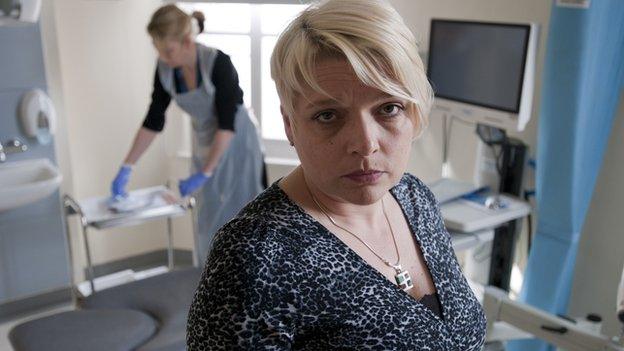
- Published10 January 2013
![A girl hiding her face [posed by model]](https://ichef.bbci.co.uk/ace/standard/768/mcs/media/images/65200000/jpg/_65200970_04f7ouyb.jpg)
- Published23 July 2012
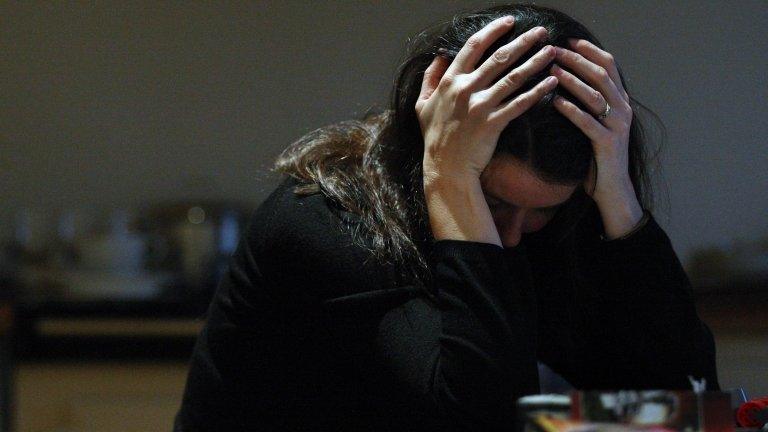
- Published28 March 2012
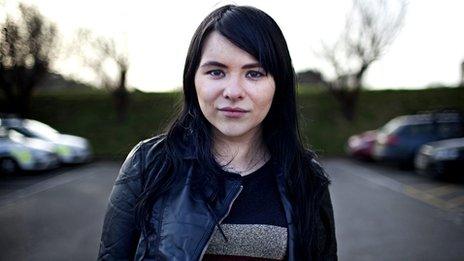
- Published12 March 2012
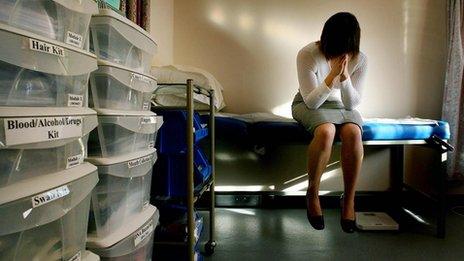
- Published9 September 2010